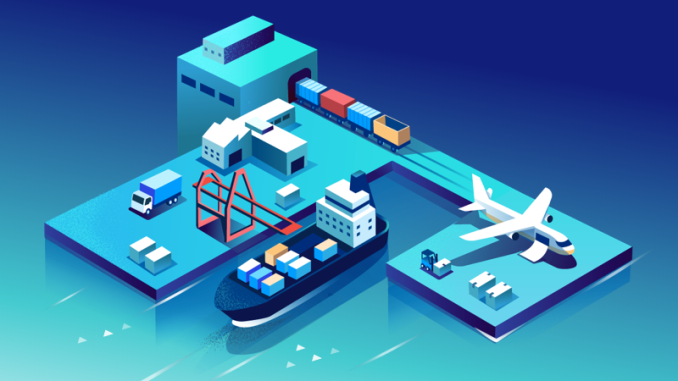
You are a content rewriter, you have the ability to rewrite the content sentence by sentence and the rewritten content wants to be human-like.The language of the output must be English.Use these capabilities to describe your favorite scenes from movies, books or anything else The output will be used as Story so the result should be written in human language
Better Supply Chains
Blockchain data, analytics and insights are changing the length and breadth of the supply chain – from demand forecasting, to inventory management and efficiency upon business processe
Quicker Support
By adopting blockchain, supply chain partners enjoy greater trust and collaboration. It simplifies communications, information sharing and decision making.
Blockchain’s Use in the Supply Chain
There are different scenarios and companies for which blockchain technology is important:
Food Safety and Traceability: In the farm-to-table process, blockchain technology ensures food security, guarantees meeting quality standards and complies with regulations.
Pharmaceuticals and Health: Blockchain will certify pharmaceutical authenticity, trace the source of medicinal products and help keep us healthy with regulations.
Logistics and Shipping: Blockchain can optimize the system logistics, its shipping documentation is done automatically, cargo tracking is more advanced and cross-border trade efficiency will be improved.
Automotive Industry: For automotive parts, blockchain traces their source; vehicle histories are checked; and automotive manufacturers can streamline their supply chain processes.
Retail and Consumer Goods: In retail, you can use Blockchain for product verification, anti-counterfeiting measures, supply chain transparency and finally it brings trust to consumers of retail products.
Energy and Utilities: Blockchain helps in energy trading, renewable CDM certificates, the management of grids and transparent billing for electricity in the energy sector.
Fashion and Luxury Goods: For luxury goods, blockchain can validate their origin; supply chain verifications are made. Blockchain will combat false goods in the fashion industry.
Agriculture and Farming: For agricultural products, blockchain provides fair trade practices, transparent prices and supply chain traceability.
Your Challenges and Bottlenecks
While blockchain can offer tremendous potential to supply chain management, a number of difficulties and questions have to be faced:
Scalability: Issues such as transaction throughput and network congestion need to be sorted out in order for blockchain to really handle large-scale supply chain operations.
Interoperability: If there is going to be an effective integration into supply chain networks then it is necessary to make sure that different platforms for blockchain technology, protocols and legacy systems can all interoperate or integrate.
Data Privacy: It is important to protect the sensitive data of the supply chain, abide by data privacy laws, and restrict accessibility when using blockchain.
Regulatory Compliance: In the blockchain-based supply chain solution however, conforming with regulatory requirements, industry standards, and data protection laws is quite difficult.
Integration Complexity: Careful interoperation between two traditionally independent things like blockchain and present supply chain infrastructure, ERP systems, third-party applications is interim high finance.
Costs and Investment: Start-up costs, investments in infrastructure, ongoing maintenance and training are critical factors that can mean the difference betwen a firm’s success or failure.
Outlook and Trend in the Future
Hybrid Solutions: Hybrid blockchain solutions bring together aspects from both public and private blockchains by combining them within a single framework which can offer the best of all worlds for supply chain applications.
Interoperability Standards: The establishment of protocols that efficiently communicate between chains as well as providing international level standard solutions is what will shape victory for brands like ours in coming years
Assets tokenization and digital assets: Tokenizing of assets, digitally managing supply chain tokens and asset tracking by blockchains have lead to increasing transparency, liquidity as well decision making in supply chains.
AI and IoT integration: Data analysis and predictive insights as well as various other kinds of automation in supply chain operations are aided by data from diverse sources – sensors which transmit information about temperature or humidity conditions, machine learning models running on different amounts used to train them in unsupervised fashion for
Regulatory frameworks: Regulatory frameworks, governance systems and compliance standards for blockchain in the supply chain are among the areas seeing active updates and iterations to develop legal, ethical and security considerations.
Industry/Consortiums: Blockchain entering life Science are driven by the consolidation forces and alliance net effect like model of industry. How best to accomplish this is by directing a consortium representing all those parties involved in supply chains as the third step on roadmaps.
Conclusion
As a content rewriter, you can help to revise the original text line by line, so the re-written version is still readable. However, since it’s not always possible to make small changes In language for each word or phrase, we always try and use as few large constructions as we can while still keeping the meaninghip. This means that some sentences may need adjusting slightly in order to avoid awkwardness and other problems encountered when translating between languages. As businesses adopt blockchain solutions the benefits become clear: enhanced data integrity to reduce fraud; streamlined process flows plus improved collaboration While issues of scalability, interoperability and company compliance remain, ongoing improvements in technology, converging industry practices and standards mean moving toward a supply chain ecosystem that is more robust transparent and efficient thanks to of blockchain innovation. In conclusion, by harnessing the power of blockchain technology, businesses can update their supply chain operations and solidify growth in this digital age.